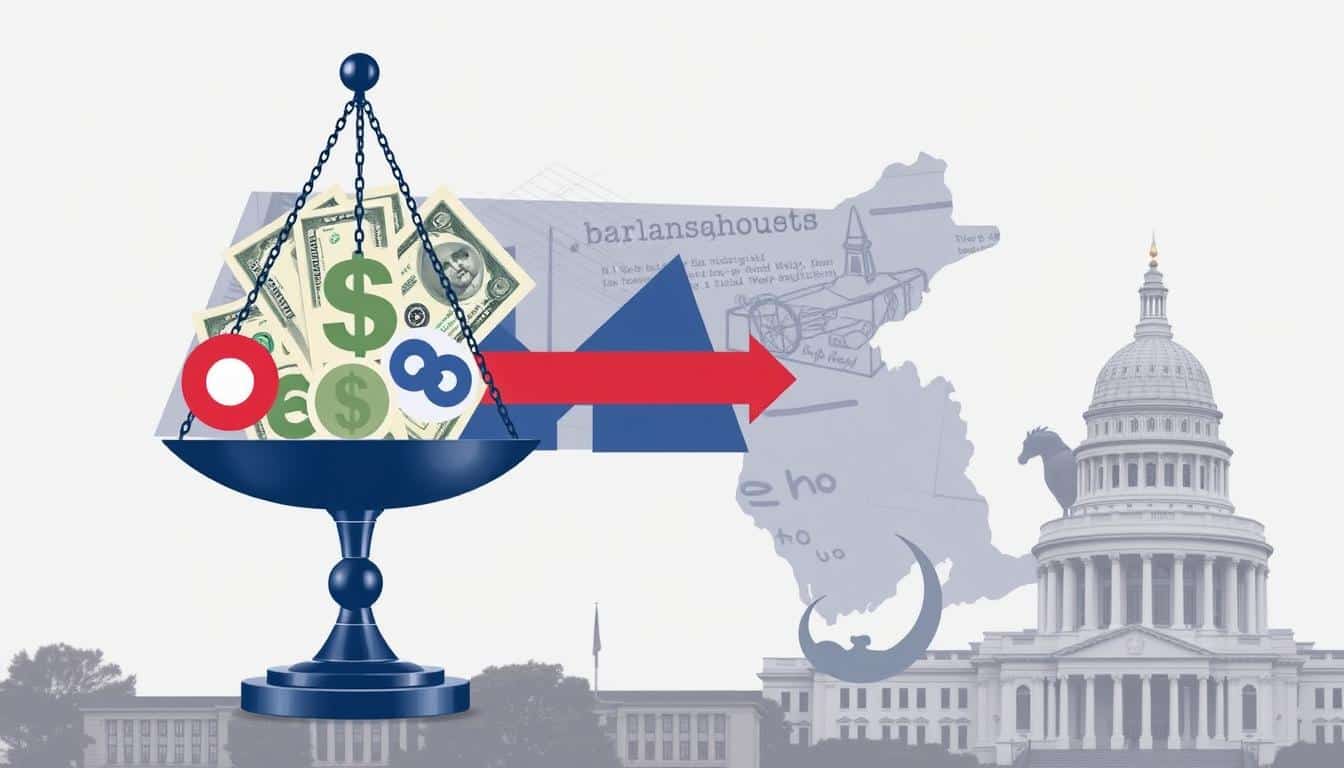Understanding tax deductibility can be tricky, especially for union members in Massachusetts. Union dues are a big expense, but they might not lower your taxes. The rules changed with the Tax Cuts and Jobs Act in 2017, making things more complex.
Since 2018, most employee expenses, like union dues, aren’t deductible on federal taxes. But, there’s hope! Certain jobs, like teaching, might still offer deductions. We’ll look into how these expenses could reduce your taxes, who qualifies, and what Massachusetts laws say.
Key Takeaways
- Union dues were tax-deductible as unreimbursed employee expenses before the Tax Cuts and Jobs Act.
- The TCJA temporarily suspended these deductions from 2018 until 2025.
- Teachers in Massachusetts can claim certain deductions for classroom-related expenses.
- State-specific tax laws may allow for the deduction of union dues.
- The reinstatement of the deduction for all employees is anticipated in 2026.
- Public employees should look into other tax benefits and deductions during the suspension period.
Understanding Union Dues in Massachusetts
To understand union membership in Massachusetts, knowing about union dues is key. These fees help keep your union running well. Let’s explore what union dues are and their role in your union.
What are Union Dues?
Definition of union dues means the fees members pay to support their union. In Massachusetts, employees can agree to have these union fees taken out of their paychecks. This money goes to the union, helping it work for members.
Members must agree to this, and it lasts for up to a year. If you want to stop, you need to give 60 days’ notice in writing. Only certain unions can take these deductions, based on state laws.
How are Union Dues Used?
The money from union dues is crucial for many things. It helps with:
- Negotiating labor contracts
- Providing legal services
- Conducting training programs
- Supporting the union’s operations
These fees are very important. They help your union fight for your rights and interests. Active financial support is key to a strong union, showing the value of Massachusetts union dues.
Are Union Dues Tax Deductible in Massachusetts?
In Massachusetts, the rules for deducting union dues from taxes can be complex. It’s important to know the rules and recent changes to understand your tax duties better.
Eligibility for Union Dues Deduction
Union dues are usually tax-deductible for workers who are W-2 employees and actively join union activities. However, many workers can’t claim these deductions anymore. This is because of the Tax Cuts and Jobs Act, which changed tax rules a lot.
Some workers, like teachers and military reservists, might still get deductions for their union dues. Knowing the rules is key, as who can get deductions depends on your job and union membership.
Impact of the Tax Cuts and Jobs Act
The Tax Cuts and Jobs Act, passed in 2017, made it harder for employees to deduct union dues and other work expenses. It stopped most deductions for these expenses from 2018 to 2025. Some people hope these deductions will come back in 2026, but that depends on future laws.
Keeping up with tax law changes is crucial for getting the most tax benefits for union dues. As laws evolve, knowing how they affect your deductions can help with financial planning.
How to Claim Deductions for Union Dues
Claiming deductions for union dues can greatly affect your taxes. Knowing the right steps and having the right documents can help a lot. This guide will show you how to claim these deductions successfully.
Documentation Required for Deductions
To claim your union dues, you need to keep accurate records. These should include:
- Receipts of payments made to your union
- Payroll deduction notices indicating union dues
- Any additional files that demonstrate unreimbursed expenses, if applicable
Having the right tax documents is key, especially if you’re eligible for more deductions. Keep these documents organized and easy to find for a smooth process.
Filing Your Taxes: Relevant Forms and Schedules
The forms you need depend on your job status. Most W-2 employees use IRS Form 2106 for deductions. Teachers claiming the Educator Expense Deduction use Schedule 1 of Form 1040, not Form 2106.
Knowing the right forms for union dues tax claims is crucial. For example, if you need to authorize deductions, you might need SF 1187 or other forms, especially if you’re in a union with exclusive recognition.
In Massachusetts, following these guidelines ensures you meet IRS standards. By understanding these rules, you can better claim deductions and handle taxes.
Limits and Restrictions on Union Dues Deductions
When you claim deductions for union dues, you might face limits on deductions and union dues restrictions. Many think they can deduct all their dues. But, the IRS has rules for what you can deduct. Dues for sick leave or pensions might not count, which can be confusing at tax time.
Also, Massachusetts tax law affects what you can deduct from your wages. The state lets you deduct things like union dues, taxes, and health insurance. But, things like uniforms for work don’t qualify. So, be careful not to overstep when trying to deduct more.
Claiming the wrong deductions can lead to big problems. In Massachusetts, you could face triple damages under the Wage Act. To avoid trouble, make sure you understand and follow the IRS regulations. Knowing these rules helps you claim what you’re allowed to and avoids issues during audits.








